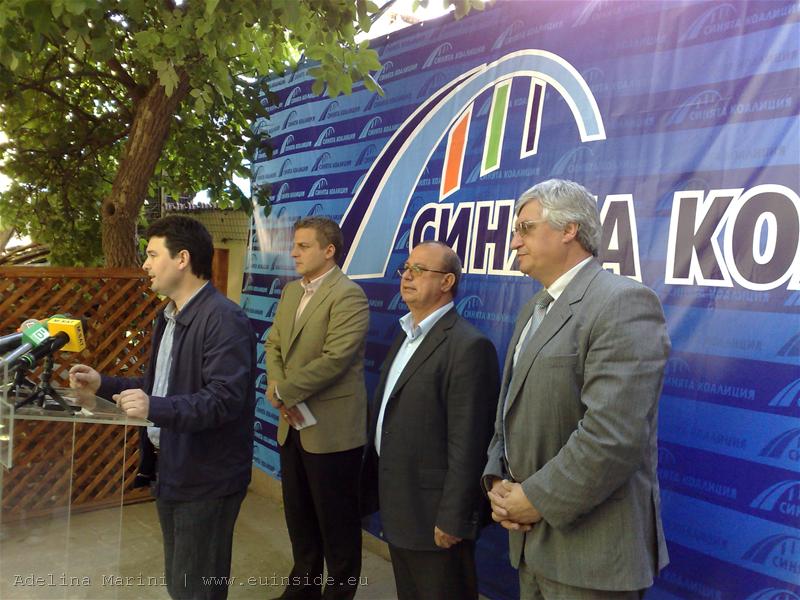India and China are a threat to the EU
Adelina Marini, June 12, 2005
One of the main theses of the British presidency of the EU is that India and China are a great challenge to the economy and, actually, for the survival of the EU. This fear is one of the reasons why the UK requested transfer of money from the CAP (Common Agriculture Policy) to the Lisbon strategy for growth and jobs. And that cause a conflict with France which is the biggest net receiver of farm subsidies. This conflict led to freezing of the negotiations for the 2007-2013 Financial perspectives. Fraser Cameron, the director-research of the European Policy Centre in Brussels, the main task of which to study the future political and economic integration of the EU. I asked him whether his institute supports the positions of UK that the competition of India and China is really that scary:
 FRASER CAMERON: EPC does not support any member state. Our main principle is to fight for closer European integration and for the reason, we strongly support the European constitution, a bigger budget as well as the EU to become more effective global player.
FRASER CAMERON: EPC does not support any member state. Our main principle is to fight for closer European integration and for the reason, we strongly support the European constitution, a bigger budget as well as the EU to become more effective global player.
- Having said that, how would you comment on the results from the referenda in France and the Netherlands where the European Constitution has been rejected?
FRASER CAMERON: This was a major step back in European integration. I think that now we have to use the reflection period and try and rethink the so called added value of the EU in our daily lives because the EU is directly related to employment, fight with trans-border crime, environment protection and also cheaper roaming tariffs, cheaper flights across Europe, opportunities for the young to study in universities across the continent. In other words these are practical examples of how useful the EU is.
- Yes, but it looks like the EU should act more quickly so as to succeed in tackling the competition of India and China, which is, in fact, threatening the Community?
FRASER CAMERON: This threat should not be overestimated. The EU continues to be the biggest internal market in the world, attracts most of the foreign investments, especially American. China will need many many years to catch up on our standard of living. But as whole it is good that India and China appear as competition because prosperous China or prosperous India are good for Europe.
- In what sense?
FRASER CAMERON: Because this would mean enhanced trade. For example, if we want to sell our high-tech products like Airbus to China, they will have to work for the money by selling more textile products to Europe. This is a win-win situation.
- True, but in the same time many Europeans are definitely scared by the cheap Chinese shoes, sold in the EU.
FRASER CAMERON: Yes, but in fact, international trade is good for the increase of the standard of living. This is a basic economic principle - a country that produces everything for itself simply doesn't exist. A balance is needed among economies and that is why countries specialize in specific production. The future of Europe is in high-tech, in services too. Our power is not in the law-cost low-tech productions. We just cannot compete with China and India in this sphere.
- Do you think that the EU, by the way it is constructed at the moment, can deal with this competition in the long-term?
FRASER CAMERON: At least it is in a very good position for this, Especially with the accession of the ten new member states and, later, with the enlargement to Bulgaria and Romania, the population of the Union will become more and highly educated. The future will depend on the quantity of the work force, the quantity of education, training and life long learning and that's exactly where Europe has something to offer. Of course, the focus should be on the high-tech and in providing services of high quality. Under such conditions we will be able to confront any competition.
 Federica Mogherini | © Council of the EU
Federica Mogherini | © Council of the EU | © Council of the EU
| © Council of the EU Luis De Guindos | © Council of the EU
Luis De Guindos | © Council of the EU | © Adelina Marini | www.euinside.eu
| © Adelina Marini | www.euinside.eu